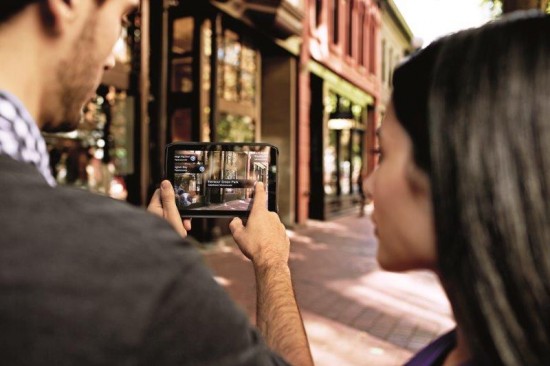































As a mobile expert and thought leader, I'm frequently asked about what the next big thing in mobility will be, and my answer often surprises inquirers -mobile's future is a disappearing act.
When most people think about the future of mobility, they think of larger, possibly flexible mobile screens, thinner and lighter designs, and the incorporation of new, currently unavailable technologies, but the reality isn't so black-and-white.

In past posts, I've explained why mobile devices gained ubiquity -in sum, they're submissive to us (they're easy for us to handle and manipulate), and the future of mobility is no exception. Think about it -what could be easier to handle than nothing at all? In time, we'll begin to see technologies that virtually disappear until we need them, at which point we'll see them front-and-center, or discretely in our periphery, depending on the optimal viewing location and utility offered. In the interim, mobile devices (both their hardware and software) will hybridize in an effort to complete the transition to virtual disappearance.
To that end, there are a few pieces of hardware and software that are currently paving the way in this transition like Google Glass which allows you to take pictures, read text messages and navigate (with your mobile phone) without ever actually picking it up. Other examples are Apple's Passbook and Reminders applications, as well as Google's Now application, which have the ability to present relevant information based on time, location (using a geofence) and usage habits, saving you from having to actively seek the information presented to you.
With this impressive transition underway equally impressive cloud computing and connected services will be required to support this massive paradigm shift, and companies like Cisco are working tirelessly to develop the infrastructure needed to power these connections.
As recently as three years ago we were using only a small fraction of the (data) bandwidth we require today, and our need for additional bandwidth is only going to increase as every sound, movement and bit of light is analyzed to ensure relevant information is available and presented to us when it's needed.
Have you noticed technology's disappearing act taking shape? Which specific piece of software/hardware is most noticeably moving in this direction?
 Tags quentes :
Nuvem
Maçã
Mobilidade
IoE
Telemóvel
Infra-estrutura
#CiscoChampion
mobile applications
Google Glass
Tags quentes :
Nuvem
Maçã
Mobilidade
IoE
Telemóvel
Infra-estrutura
#CiscoChampion
mobile applications
Google Glass